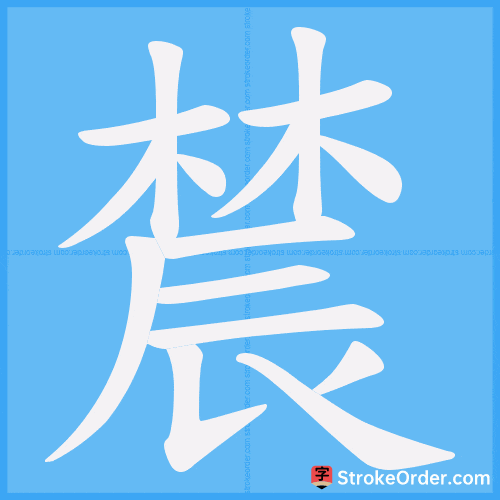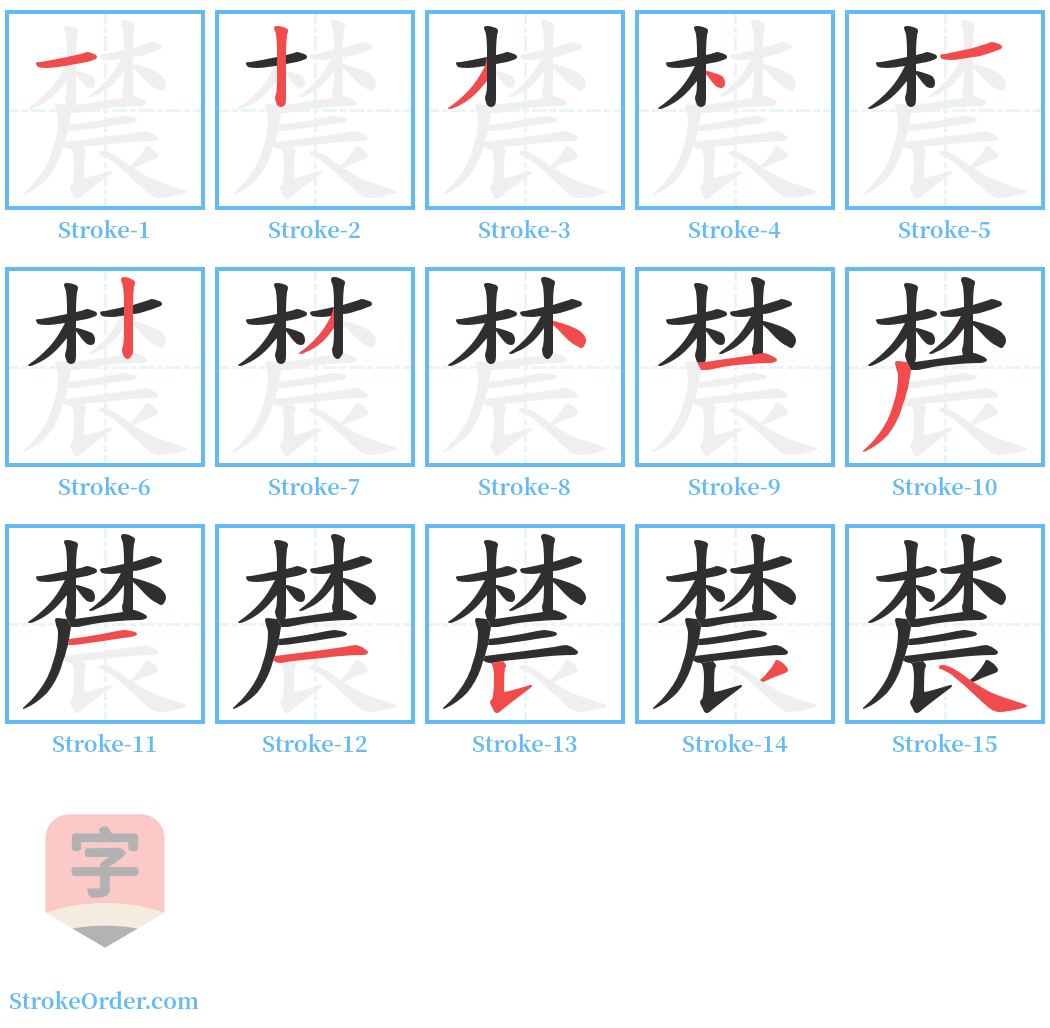辳 Stroke Order
Animated Stroke Order of 辳

Stroke Order Diagrams for 辳

Information of 辳
Pinyin
nóng
Radical
辰
Strokes
15 strokes
Usage
★★
Definition
辳:
1. Same as "农" (nóng), which means agriculture or farming.
2. Verb (pictophonetic). The character originates from the oracle bone script, combining "林" (lín) meaning forest and "辰" (chén) which can refer to ancient farming tools made from shells. In the small seal script, it is related to "晨" (chén), meaning morning. The original meaning is to cultivate or farm. This has the following implications:
- '耕' (gēng): to plow or till the soil.
- '农家子' (nóngjiāzǐ): a person engaged in farming in rural areas.
- '农舆' (nóngyú): a vehicle for agricultural purposes.
- '农战' (nóngzhàn): engaging in farming as a basis for warfare.
- '农月' (nóngyuè): the busy months of agricultural work following the start of summer.
3. Same as "努" (nǔ). It means to strive, to exert effort. The text mentions that the common people work hard in agriculture.
- Example: "Effort" can be expressed as: "The common people working diligently is crucial for current matters." (from "左传·襄公十三年").
4. Verb (pictophonetic). Similar explanation as above regarding its origins and meanings related to agriculture and effort.
5. Noun: agriculture, with an emphasis that nothing is more important than encouraging the people to engage in farming. (from "论贵粟疏" by 晁错).